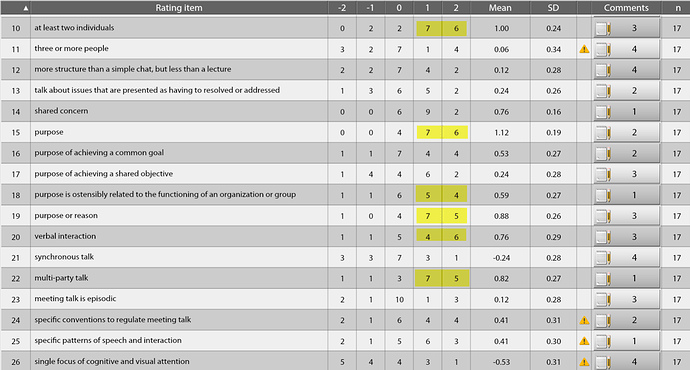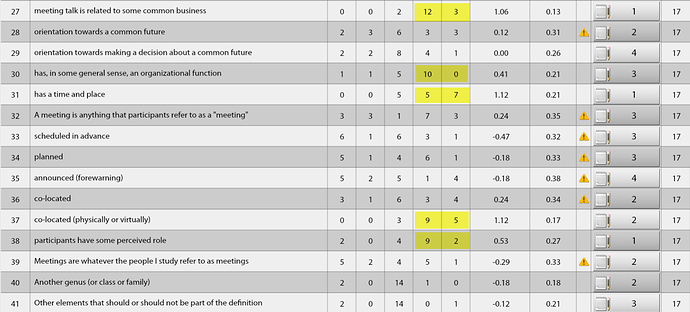Here are the results from the quick survey about which elements meeting researchers and practitioners consider important or not important as part of a definition of a meeting. I distinguished 2 types of elements: genus and specifics:
So here are the preferences regarding the genus elements (note that this is based on the preferences of only 17 people, 10 of which identified as academics, 4 as practitioners and 3 as both):
So among these people the strongest agreement is about that meetings are gatherings, communicative events, but not genres.
Regarding the specifics:
I think the overall picture is that many of the elements are controversial but there is some agreement on these elements:
- At least two individuals
- purpose / purpose or reason
- purpose is ostensibly related to the functioning of an organization or group
- verbal interaction
- multi-party talk
- meeting talk is related to some common business
- has in some general sense an organizational function
- has a time and place
- co-located (physically or virtually)
- participants have some perceived role.
To better understand these choices, we need to also look at the comments that people left when filling in the survey, but I currently don’t have time to do this. It will also be interesting to see how the picture changes when distinguishing between academics and practitioners, but I will also have to postpone that for the moment.


